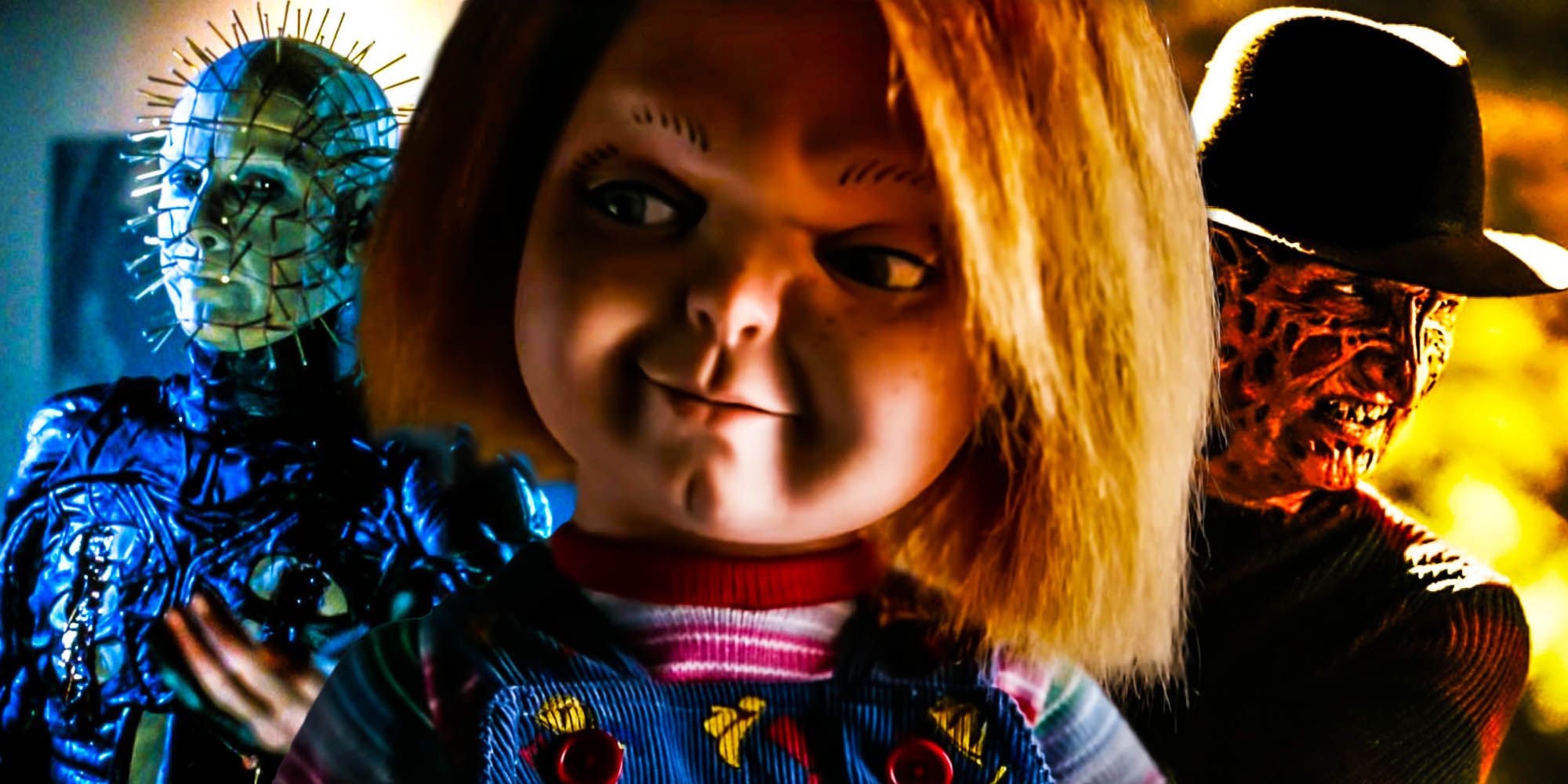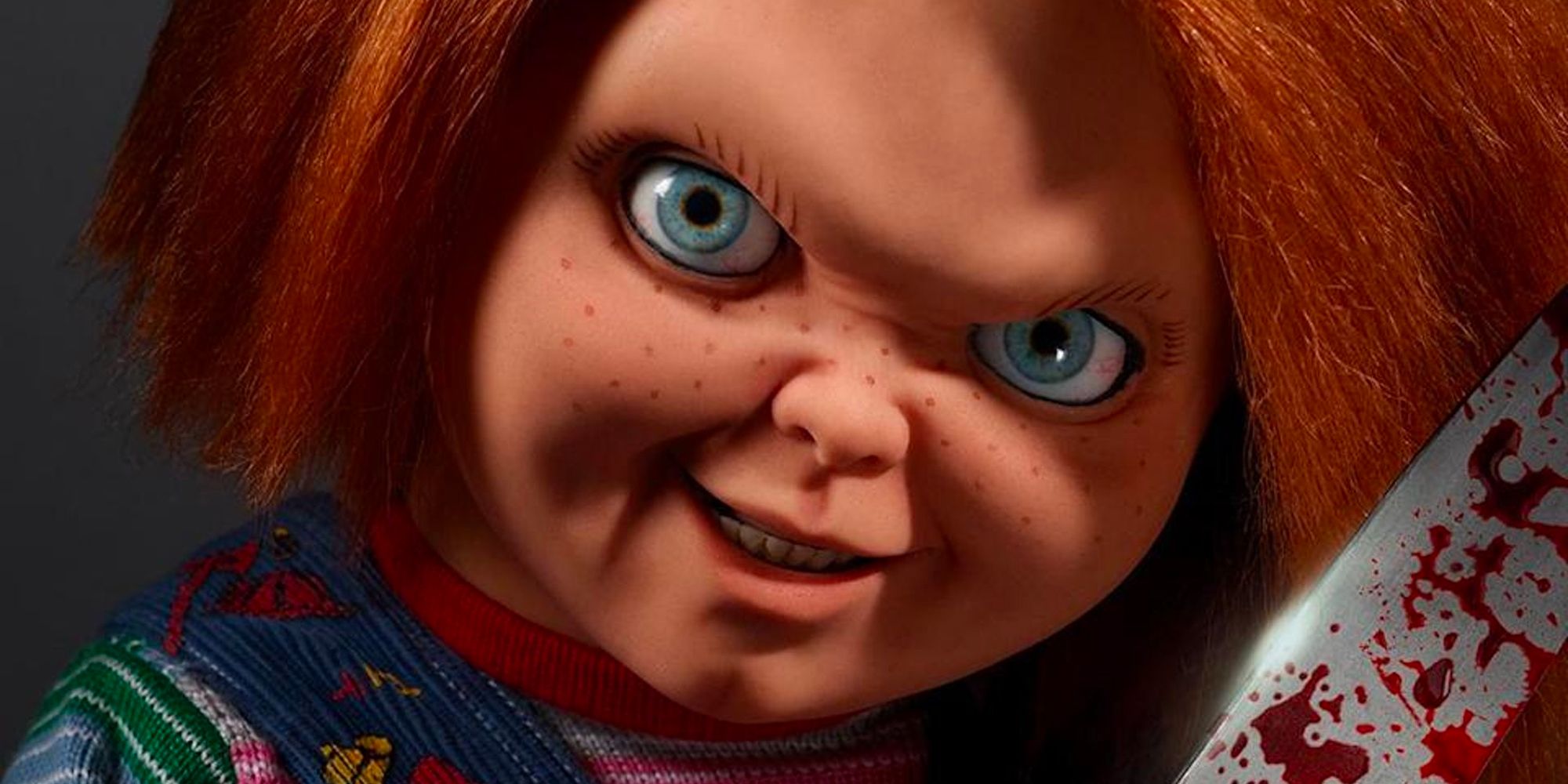The Chucky TV show will explore the titular killer doll's backstory, but here's why that could be a terrible idea. Chucky is one of the most infamous slashers in horror cinema ever since his debut in Child’s Play in 1988. After seven films (and one reboot in 2019), the murderous doll has returned for a TV show set after Cult of Chucky's cliffhanger ending.
This series promises to put Chucky in new situations while exploring his relationship with Jake, the lonely teenager who happens across the doll during a yard sale. Fans of the Child's Play movie franchise will know that Chucky really houses the spirit of Charles Lee Ray (Brad Dourif), a notorious serial killer. A dying Ray transferred his soul into a Good Guy doll to stay alive in some form - and has been trapped as a doll for over 30 years. While the movies have teased out part of his backstory, the Chucky TV promises to reveal his origin and what made him a killer.
The issue with many long-running horror franchises is that the sequels, inevitably, explore the backstory of their central slashers. The problem with the likes of the Anthony Hopkins-less Hannibal Rising or other similar prequel tales is that they often rob these villains of their mystery. Part of their menace during their first appearance is their unknowability, so proving a motive or logic can serve to rob them of that. After seven movies, the Chucky series is finally exploring Charles Lee Ray's background, but for the reasons outlined already, this could be a bad move.
Take the original A Nightmare On Elm Street, where the mystery surrounding Freddy Krueger was made all the more frightening for the lack of explanation for his supernatural powers. Then one sequel at a time, viewers learned more about who he was in his old life. 1991's Freddy’s Dead: The Final Nightmare finally revealed that before he died, the slasher made a deal with some dream demons that gave Freddy the power to kill people through their nightmares. This revelation added little to the mythos of who Krueger is; in fact, finding out he made a veritable deal with the devil largely served to undermine his menace. While Chucky moved into a more comic tone like Freddy did in later sequels, the former series kept the doll (largely) free of backstory.
Another example is Halloween: The Curse of Michael Myers, which also attempted to explain Myers' origin and powers, revealing he was the recipient of a curse that gives him immortality and an unrelenting drive to kill his family. Again, this attempt to explain Michael just took away what made him so scary. Of course, there are some cases where exploring a character’s backstory makes them more intriguing. Throughout the original Hellraiser films, it's revealed that Pinhead (also called the Hell Priest) used to be British Army Captain Elliot Spencer. This was expanded with Hellraiser III: Hell on Earth even showing the effects of remembering his former life before becoming a Cenobite and what drove him to seek the box. This backstory was organically worked into the character, informing his motivation but never undermining his power.
The Chucky TV show has the potential to take the slasher in a bold new direction. After so many films, maybe it is time to explore what made him a monster to start with. That said, for every movie that expanded on a slasher’s backstory in a meaningful way, it feels like two more only served to lessen their impact. An audiences' greatest fear is, ultimately, of the unknown so Chucky is taking a risk by shining a light on his origin.


